Many fond memories from my childhood have one particular thing in common: sunflower seeds. For most of my youth, they were my absolute favorite snack.
No summer car trip was complete without a big bag of salted sunflower seeds. I remember the glee of popping them open with my teeth, spitting the shell out into a little can or, even better, out the car window, and crunching on the little yummy seed.
As I grew up, I began to wonder if sunflower seeds were actually healthy for me. Was there a chance I was consuming too many of these salty seeds? Should I consider replacing them with a different treat altogether, like these yummy-looking blueberry snacks?
In this article, we'll discuss if your sunflower seed intake has nutritional benefits, or if you should only be enjoying them in moderation. We'll also find out if too many sunflower seeds can be bad for your health.
These tiny snacks are yummy and fun to crack open, but are there dangers lurking inside those salty shells? Keep reading to find out more!
Are Sunflower Seeds Healthy?
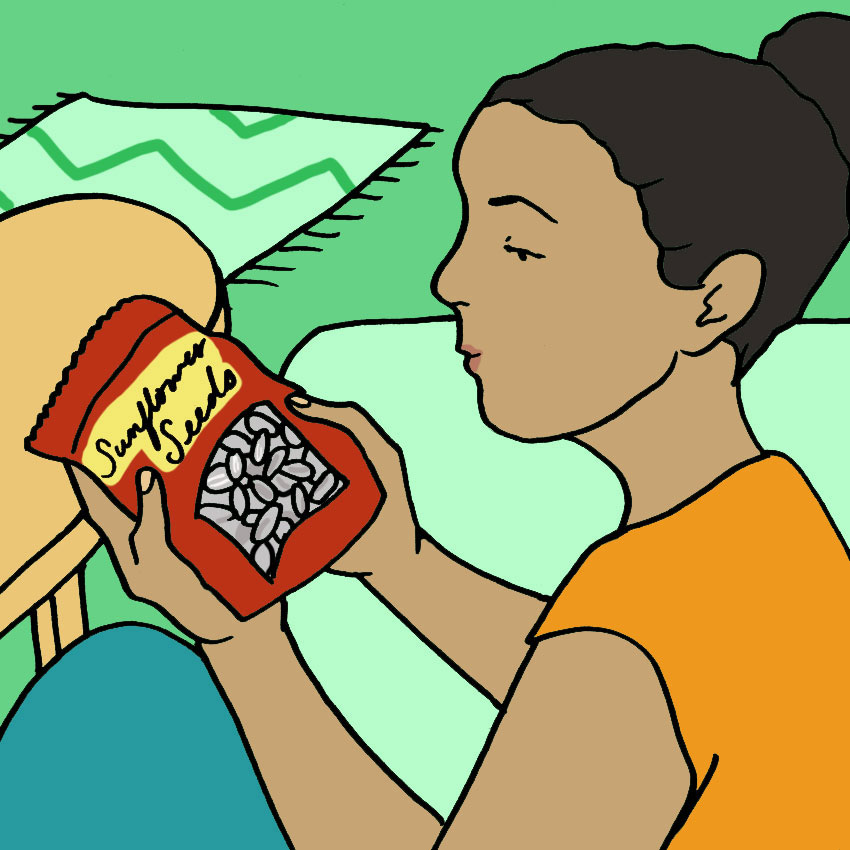
The good news for me, and perhaps for many of you as well, is that sunflower seeds are healthy and have many health benefits. The bad news is that they need to be eaten in moderation — a fact that I was blissfully ignorant of growing up.
Sunflower seeds are an excellent source of folate, vitamin E, copper, niacin, protein, fiber, and selenium. Incorporating them into your diet can help lower your risk of heart disease. They are also high in polyunsaturated fats, which, according to The American Heart Association, can greatly benefit your heart.
How Many Calories Are In Sunflower Seeds?
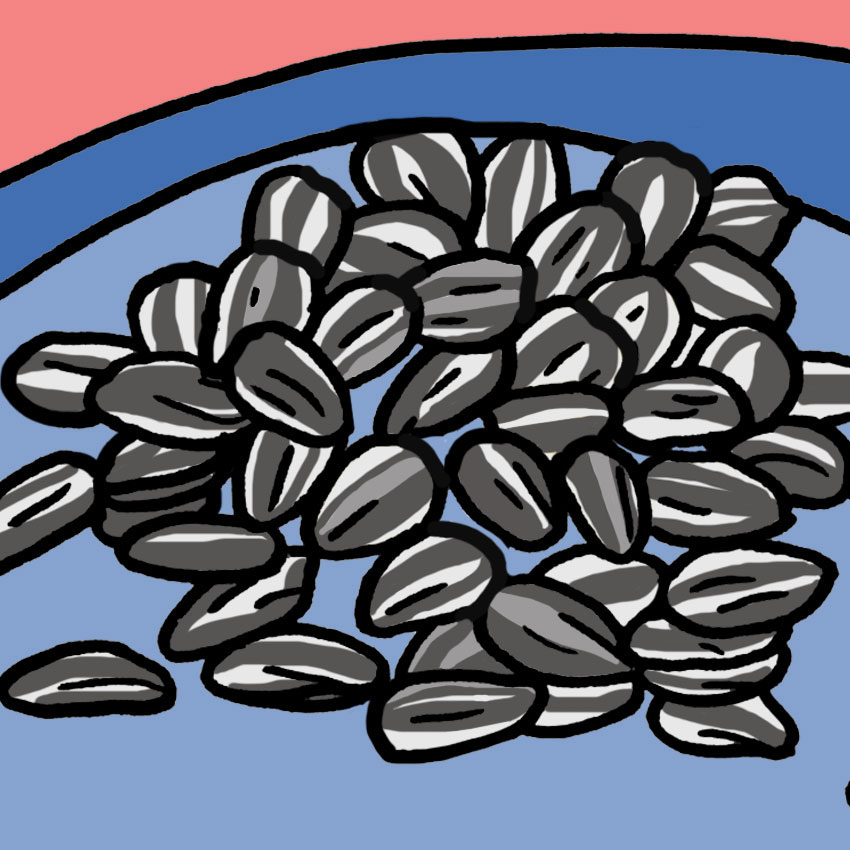
According to the United States Department of Agriculture (USDA), ¼ cup of dry roasted sunflower seeds contains 186 calories. A ¼ cup of dry roasted seeds with the edible shell contain 67 calories, because you end up discarding the shells.
That means that if you eat sunflower seeds that are already unshelled out of a giant bag, they're a pretty high-calorie snack — and it can be very easy to overindulge, since it doesn’t seem like you are eating that many.
Sunflower Seeds: Nutrition Facts
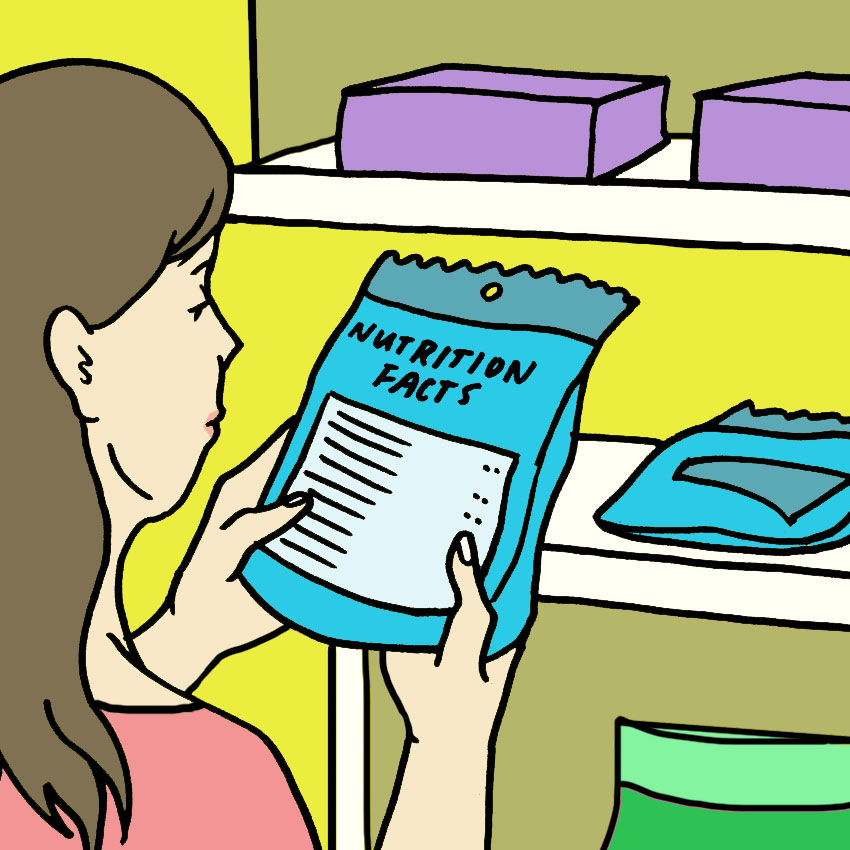
According to the USDA, 1 cup of dry roasted sunflower seeds has the following nutritional values:
- Protein: 23 g
- Dietary fiber: 15 g
- Fat: 76 g
- Carbohydrates: 28 g
- Calories: 830
- Iron: 9 mg 41% of your recommended daily value
Are Sunflower Seeds Bad For You?

When eaten in moderation, sunflower seeds aren’t bad for you, but it is possible to overdo the amount you're eating — especially since they are so small and easy to binge. Because sunflower seeds are high-calorie, they can lead to weight gain if eaten in excess.
Another potential pitfall of sunflower seeds is the amount of salt that can be lurking on them. The USDA’s national nutrient database reports that 1 oz. of salted, toasted sunflower seed kernels contains 174 milligrams of sodium. That's a lot of salt!
Sunflower seeds also have high amounts of minerals and nutrients that, while healthy for you in moderation, can easily be overeaten.
For example, selenium is an important mineral that aids in DNA synthesis and helps reduce oxidative stress from free radicals, according to Healthline.
However, 5 oz. of sunflower seeds contain twice the amount of daily recommended selenium. Five oz. isn’t much — as a child I could chomp down 5 oz. in no time at all. And according to Livestrong, having too much selenium in your diet could result in selenium toxicity, which contributes to brittle hair, nails, skin rashes, irritability, and fatigue.
Can You Be Eating Too Many Sunflower Seeds?
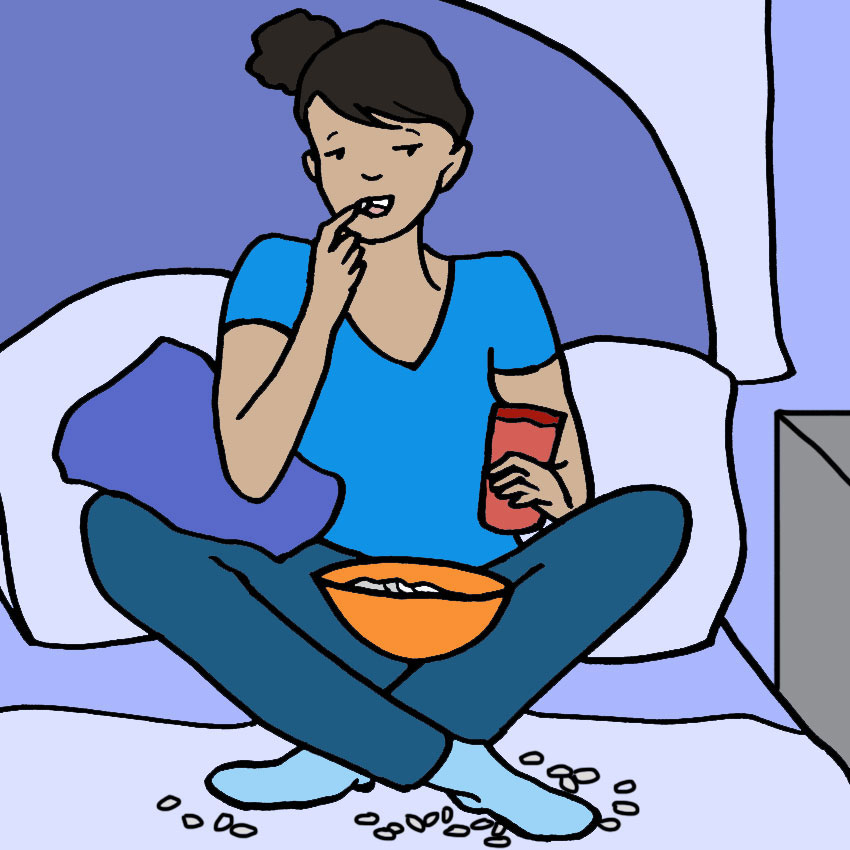
It is definitely possible to overeat sunflower seeds, just like it is with every food.
An unexpected complication of overindulging in sunflower seeds, according to Delta Dental, is tooth damage, particularly if you enjoy cracking unshelled seeds between your teeth. The constant cracking and biting of the shell may put stress on your teeth, potentially leading to fractures.
If you enjoy eating flavored sunflower seeds, you may also need to be on the lookout for chemical additives like monosodium glutamate (MSG).
Is Sunflower Seed Butter Good for You?
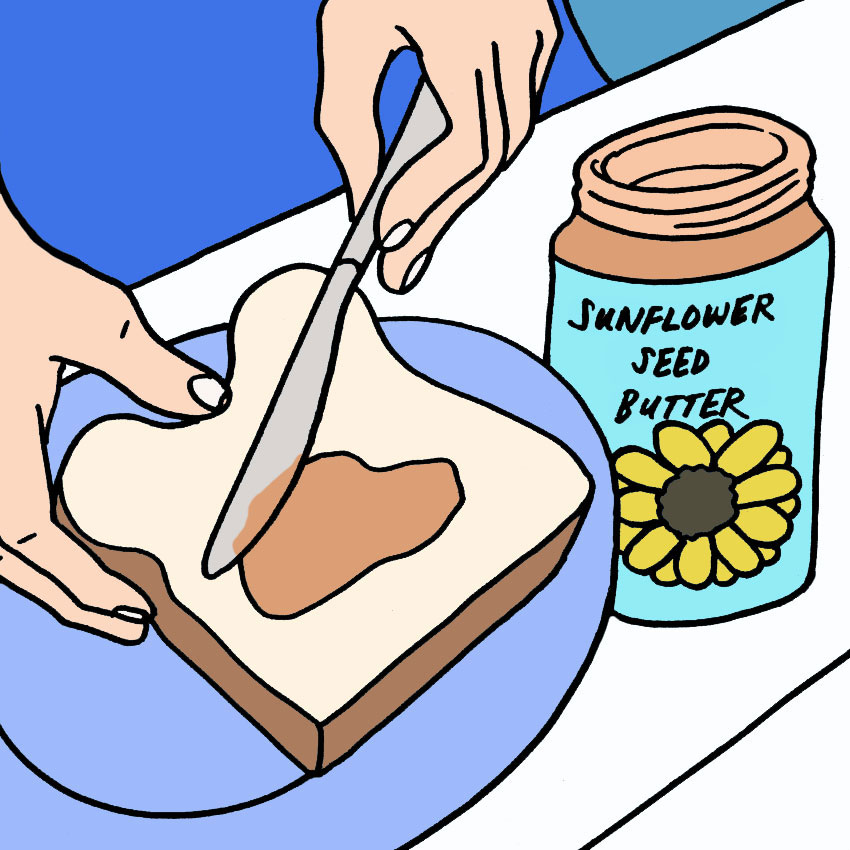
Sunflower seed butter can be a great option for those with a tree nut allergy, according to Everydayhealth. It contains healthy fat, which can help lower cholesterol and help fight inflammation. Choosing sunflower seed butter over peanut butter will give you more protein, magnesium, and vitamin E.
What About Sunflower Seed Oil?
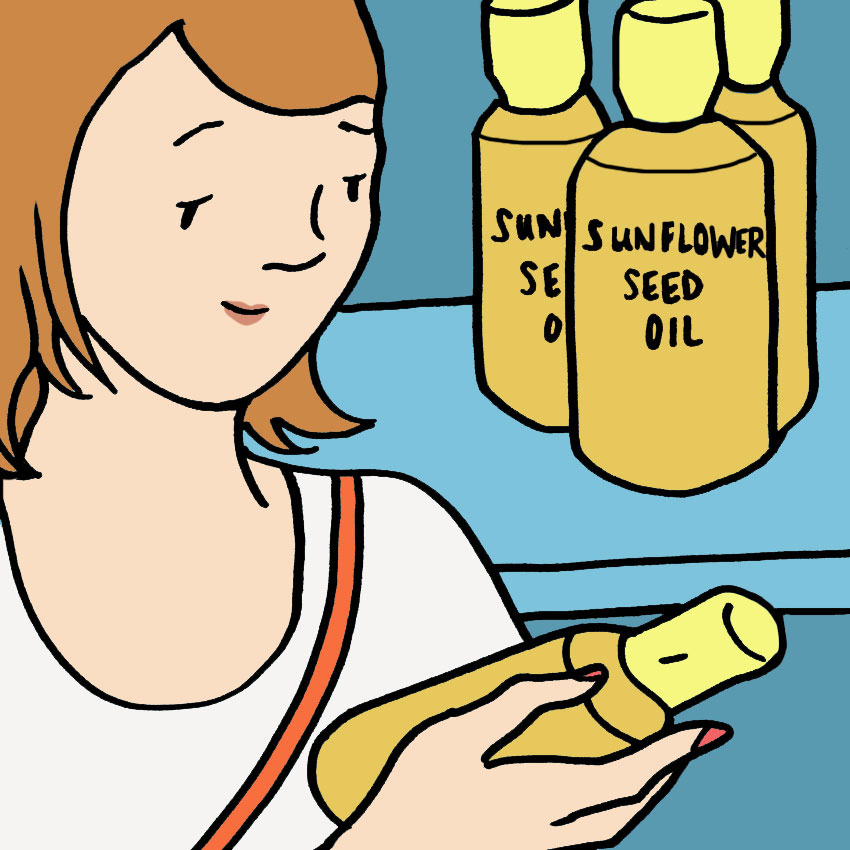
Reports are mixed on using sunflower seed oil. According to WebMD, studies have shown that sunflower seed oil can be effective in lowering cholesterol in some circumstances. However, it is not as effective as some other oils, such as flaxseed oil.
USNews also published a report detailing that sunflower seed oil is very high in omega-6 fatty acid, which is a very common type of fatty acid in our Western diet. Because it is so prevalent, it is very easy for this fatty acid to get out of balance with omega-3, which is less common. A healthy diet should have these two fatty acids in a 1:1 balance. Too much omega-6 can lead to inflammation and put you at risk for disease.
So, if you are looking for a different type of oil to use that would be beneficial, try fish oil, hemp seed oil, flax oil or walnut oil.
Sunflower Seed Allergy

You may be allergic to sunflower seeds if, after consuming them, you encounter any of the following symptoms:
- eczema
- itchy mouth
- unsettled stomach
- vomiting
- anaphylaxis
Healthline reports that a family history of the allergy and other nut or food allergies may put you at risk of allergy, too. Seed allergies are less common than nut allergies, but if you suspect that you may be allergic to sunflower seeds, your best course of action is to avoid them completely and consult your doctor.
There is currently no known cure for food allergies, although sometimes people, especially children, grow out of them. If you suspect that you may have a sunflower allergy, schedule an appointment with an allergist to learn more.
If this article has helped you incorporate sunflower seeds into your diet in a healthy and nutritious way, be sure to SHARE it with a friend who can benefit as well!




